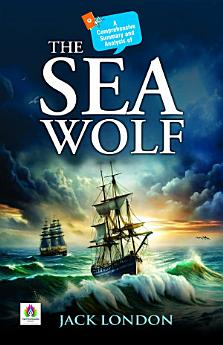A Comprehensive Summary and Analysis of The Sea Wolf: Demanding Ebook Book
About this ebook
Wolf Larsen, the central figure of the story, is a Nietzschean superman—a man of extraordinary physical and intellectual power who rejects conventional morality and views life as a brutal contest of strength. Larsen’s complex and often contradictory nature—brutal yet cultured, ruthless yet philosophical—creates intense psychological conflict as Van Weyden struggles to reconcile his civilized worldview with the brutal reality of life at sea.
Van Weyden’s journey is not only a fight for physical survival but also a profound internal struggle as he grapples with questions of morality, power, and human nature. His eventual transformation from a passive intellectual to a self-reliant and courageous man reflects London’s exploration of existential themes and the clash between idealism and naturalism.
The novel combines high-seas adventure with philosophical depth, as London explores the nature of authority, the survival of the fittest, and the search for meaning in a world dominated by violence and chaos. _The Sea-Wolf_ remains one of London’s most powerful and thought-provoking works, blending psychological insight with visceral action.
Ratings and reviews
- Flag inappropriate
About the author
Jack London (1876–1916) was an American novelist, journalist, and social activist known for his adventure stories and exploration of naturalistic themes. Born in San Francisco, London was a self-educated and prolific writer who gained fame with works such as _The Call of the Wild_, _White Fang_, and _The Sea-Wolf_. His writing reflects his experiences as a sailor, gold prospector, and laborer, blending realism with philosophical and social commentary. London’s works explore themes of survival, human nature, and the clash between civilization and the wild. He remains one of the most widely read and influential American writers of the early 20th century.








